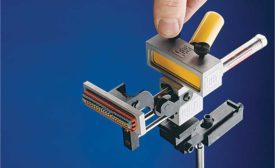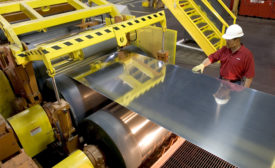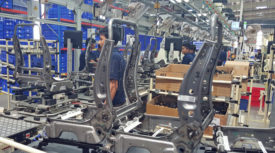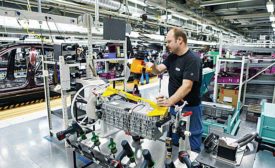Automotive Assembly
Production volume, durability, substrate and total cost of ownership are among many factors to consider when choosing a part marking technology.
Read More
ASSEMBLY Capital Spending Report 2017: Capital Spending Continues to Increase
With the economy firing on all cylinders, our annual Capital Equipment Spending Survey predicts continued growth in investment.
December 1, 2017
Never miss the latest news and trends driving the manufacturing industry
Stay in the know on the latest assembly trends.
JOIN TODAY!Copyright ©2024. All Rights Reserved BNP Media.
Design, CMS, Hosting & Web Development :: ePublishing





